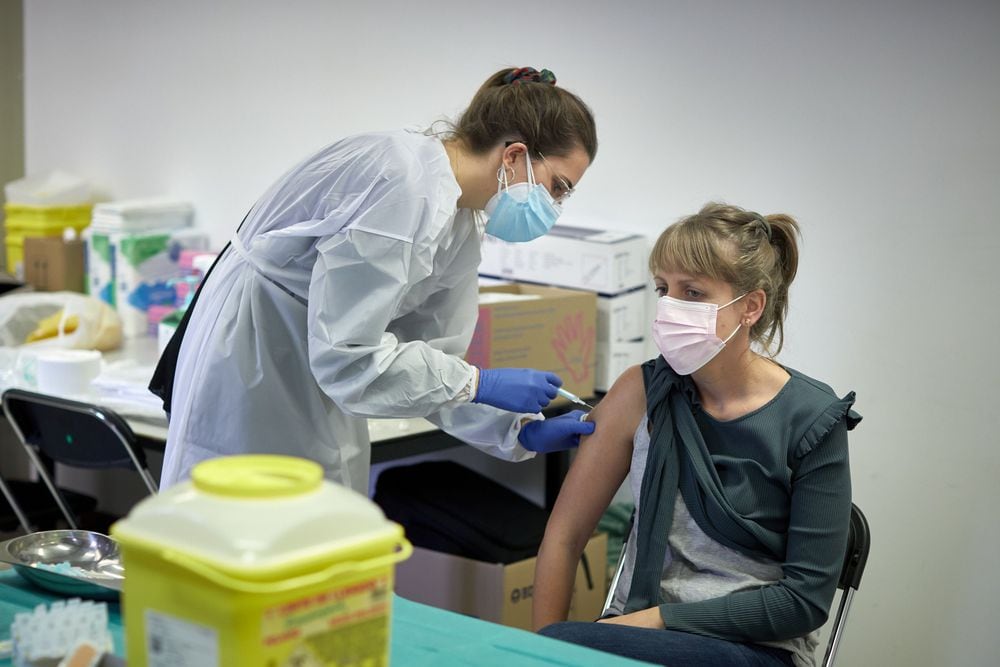"There are no reasons not to give people over 65 with the AstraZeneca vaccine."
With these words, Alejandro Cravioto, president of the expert committee that advises the World Health Organization (WHO) on vaccines against covid-19 has today questioned the strategy that Europe is following with this drug.
Countries that represent at least two-thirds of all EU polbaicón, including France, Germany and Italy, have announced that they will administer this vaccine only to the youngest of that age.
Some, like Spain, have lowered it to 55 years.
The reasons given by the WHO experts are the same as those used by countries such as the United Kingdom to inject the Anglo-Swedish drug into the elderly: although in clinical trials there was a small population over 55 years old and there was no statistically significant sample as To test their efficacy against each other, the immune response is very similar to that of younger people.
"As we have identified those over 65 as a priority group, there should not be an age limit to administer the vaccine," said Cravioto, who has also recommended that the drug be applied regardless of the predominant variant of the virus.
Despite the fact that the vaccine has shown a somewhat lower response with the British and significantly less with the South African, it still protects against the disease.
And more importantly, in Cravioto's words, “there is indirect evidence” that they prevent the most severe forms of COVID.
Nor can this statement be made bluntly, as the samples are still too small for the evidence to be strong.
In any case, the WHO considers that given the shortage of vaccines that exist in the world right now, countries should not be timid when applying AstraZeneca to protect, to a greater or lesser extent, the elderly, who are those most vulnerable to suffer the most serious consequences of covid, including death.
In Spain, 6 out of 10 people who died in the second wave were over 80 years old.
The agency's experts also recommend the vaccine even to other groups in which it is not sufficiently proven, such as pregnant women or lactating women, as long as they are at high risk of infection.
If it had been decided to vaccinate the elderly with the AstraZeneca drug, their mass immunization could have started this week.
Only in February will they receive 1.8 million doses, enough to put the first puncture to almost half of those over 80 and then continue with the rest, since between the first and the second inoculation 12 weeks have to pass .
But the elderly will have to wait until the end of this month and the beginning of next, depending on the autonomous communities.
The decision was made last week by a majority of the Public Health Committee of the National Health System, made up of technicians from the autonomous communities and the ministry.
The argument is that the vaccine is not tested in the elderly and that for the most vulnerable it is better to wait for the most effective vaccines: those from Pfizer and Moderna.
The main medical societies in the country agree with this argument.
If there were no anticipation of having these two drugs in the short term, they would be happy to use AstraZeneca's, but given the imminence of their turn, they prefer to be conservative.
This is how the Society of Preventive Medicine, Public Health, Gerontology, Vaccination and Epidemiology have expressed themselves.
This collides with other voices, minority among the scientific community in Spain, but that do sound abroad, who demand to use the vaccine with older people to protect them as soon as possible.
Five autonomous communities asked to be more flexible with the vaccine and also to puncture older people: Catalonia, Andalusia, Madrid, Aragón, Castilla y León.
At least the first two have announced that they will reiterate it in the Interterritorial Council that is held this Wednesday.

